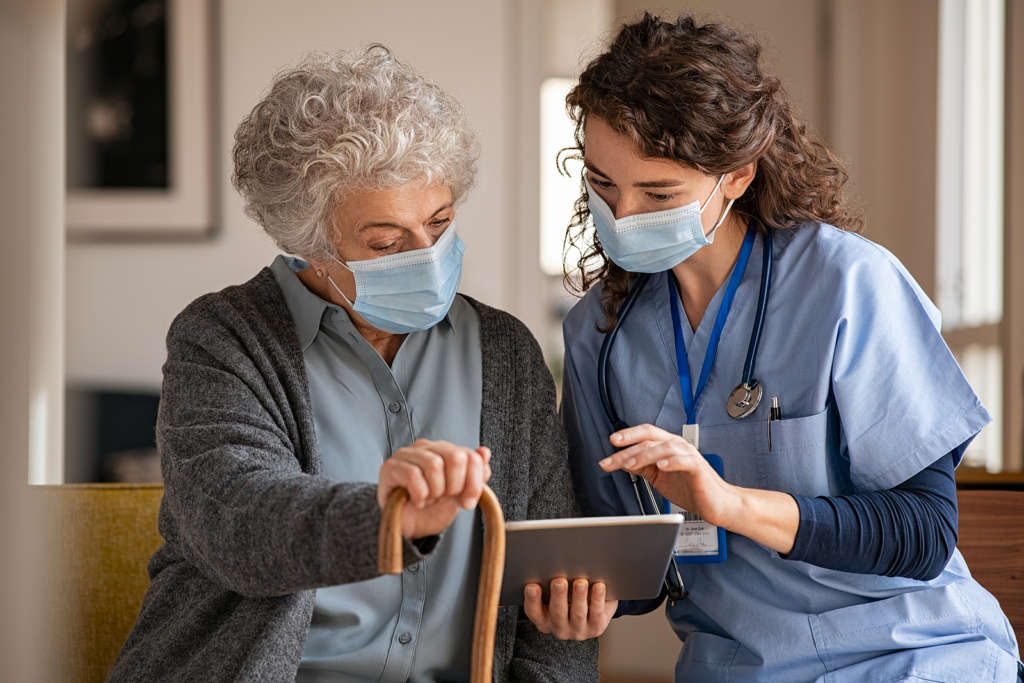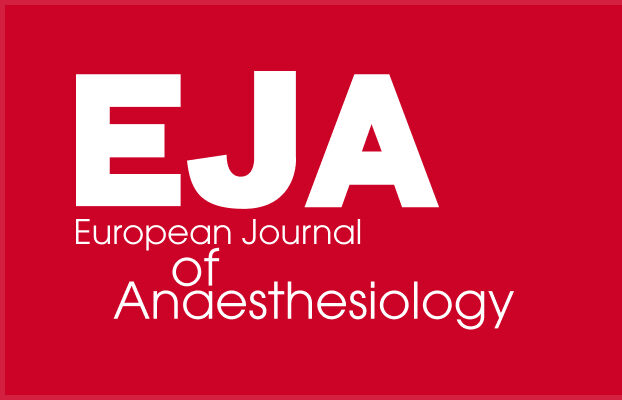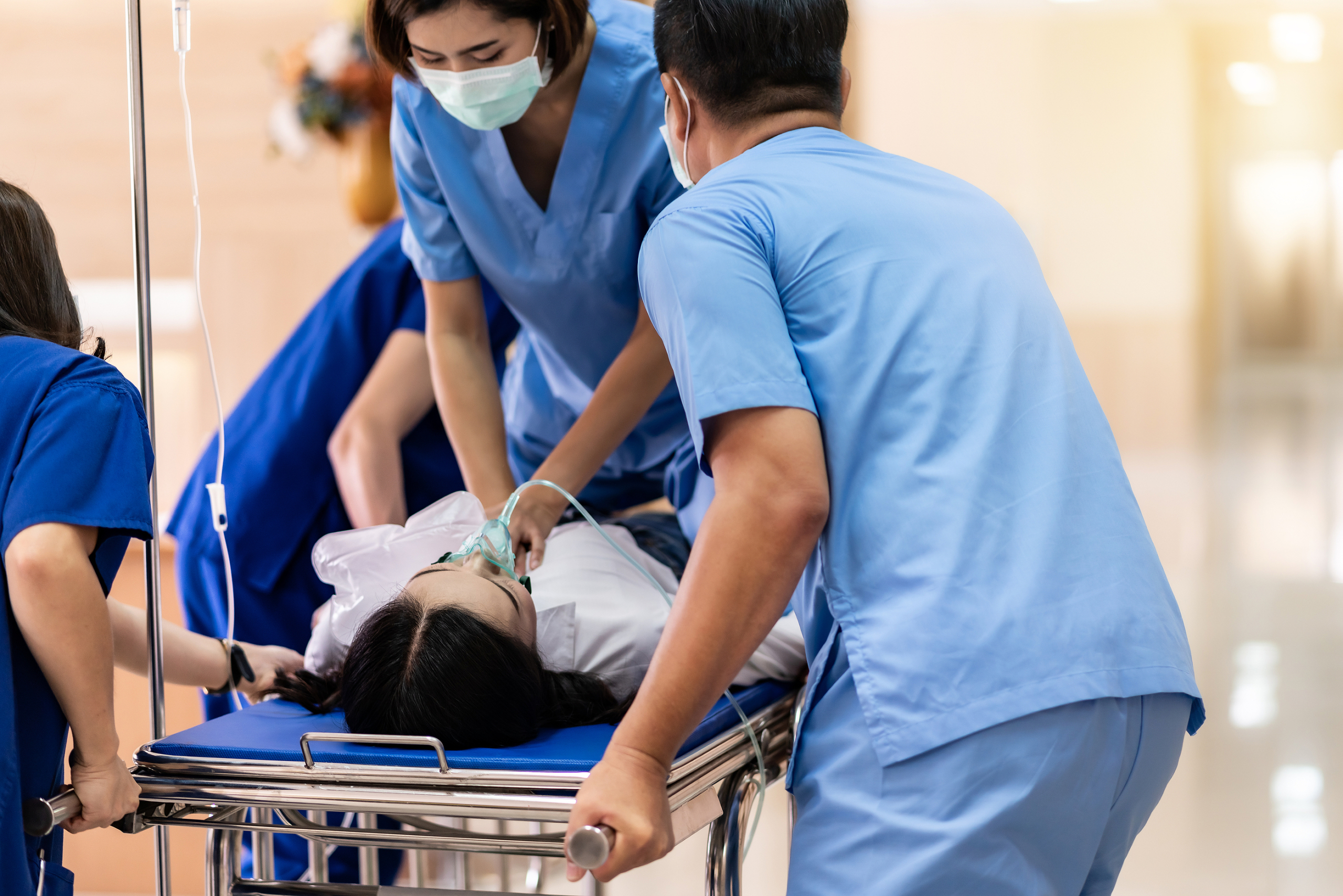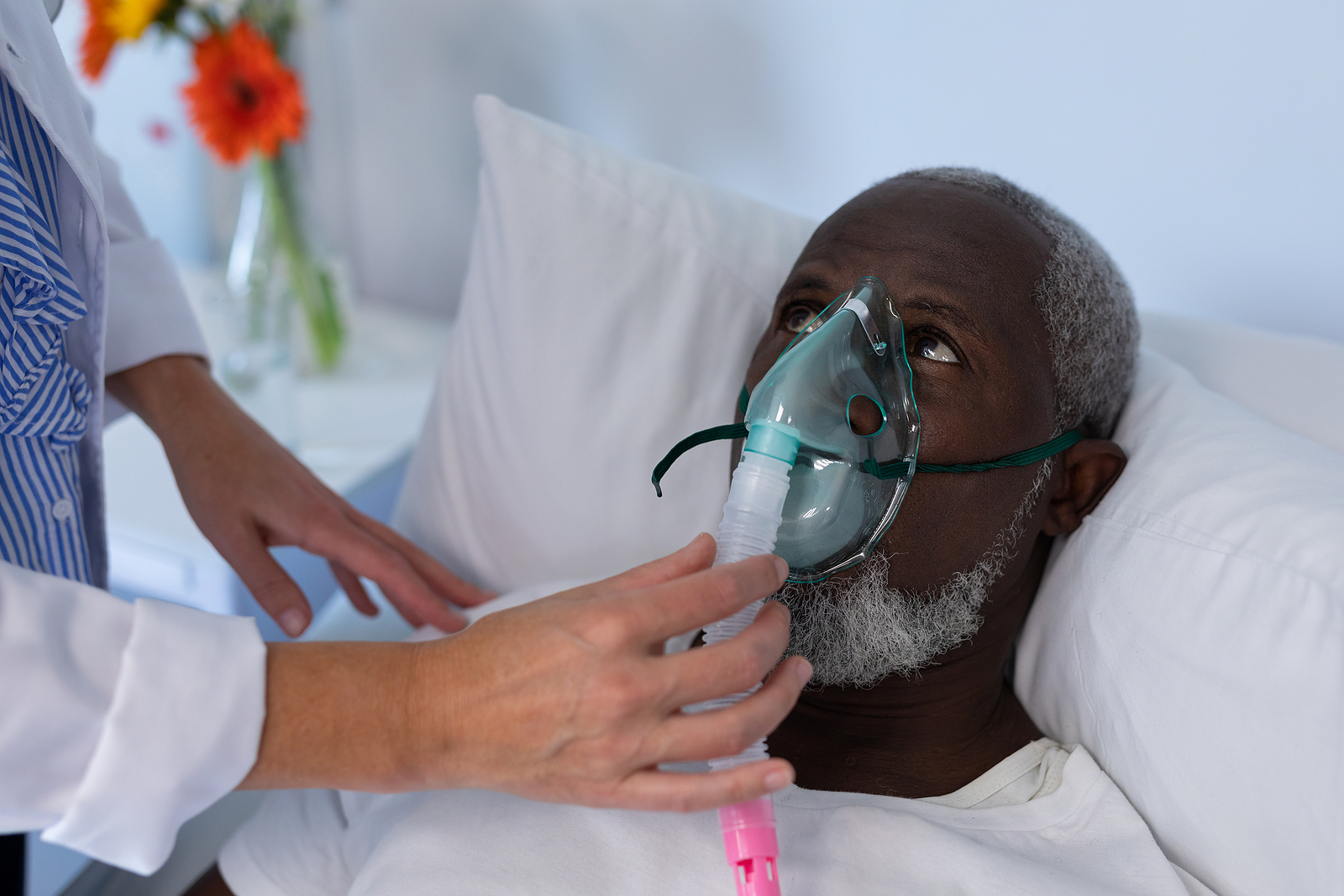Newsletter 2021
Make the difference and improve the quality of care: introducing a Master’s in Perioperative Care of Older Patients
Authors: Gabriella Bettelli MSc, Scientific Coordinator, 2nd L Master in Perioperative Geriatric Medicine, San Marino University gabriella.bettelli@unirsm.sm
Antonio Crucitti MSc, Associate Professor of Surgery, Catholic University of Sacred Heart, Rome antonio.crucitti@unicatt.it

Demographic changes occurred in recent years and the consequent expansion in the number of older patients who need surgical care has produced a growing need for specific education among surgeons and anaesthetists in the field of perioperative geriatric medicine. At the same time geriatricians, whose competencies are more and more frequently enrolled in preoperative assessment and preparation for surgery, may not be familiar with the pathophysiology of surgical aggression and principles of perioperative medicine. Nurses education is also not routinely extended to geriatric care, mostly in the field of surgery.
On the basis of these premises, a 2nd Level University Master’s was designed and organised by a couple of experts, affiliated to the San Marino University (Gabriella Bettelli) and the Catholic University of Rome (Antonio Crucitti).
Gabriella Bettelli is anaesthesiologist with a 2nd Level University Master’s in Geriatric Medicine and long-lasting experience in geriatric anaesthesiology, having directed for years both the Anaesthesia Department and the Geriatric Surgery Area at the Italian National Research Centre on Aging (INRCA) in Ancona. She also has been a member for years of the ESA Perioperative Care of the Elderly SubCommittee and of three ESA-ESAIC task forces.
Antonio Crucitti, past-President of the Italian Society of Geriatric Surgery, is Associate Professor of Surgery at the Catholic University in Rome and Director of the Surgical Department at the Cristo Re Hospital, where he implemented an Enhanced Recovery After Surgery (ERAS) path with a specific focus on older patients. He is also director of the 2ndLevel Master’s in Risk Management at the High School of Economics and Healthcare Services at the Catholic University and was a member of the experts’ panel that produced the Italian Intersociety Consensus PriME.
In the intentions of the two Scientific Directors, this Master’s presents two main appealing elements: first, it provides a multispecialty, multidisciplinary education in a field (Perioperative Geriatric Medicine) that presently includes more than 50% of the global surgical activity in the majority of advanced countries and in many developing countries as well. Secondly, it was designed in accordance with relevant educational standards that have been defined at the university level in the UK, the country where, thanks to some renowned pioneers such as Marjory Warren and Lionel Cosin, geriatric medicine was born.
Conceiving the Master’s program required a detailed analysis of the clinical path covered by older surgical patients during their pre-, intra- and postoperative course. The main steps of this analysis consisted first in identifying and coding the different tasks operators are called to perform all along the clinical path, and then in achieving their reciprocal embedding in a comprehensive, mutually integrated vision, where the contributions of the different actors interlink and reinforce each other.
The different steps of this complex educational process range from preoperative clinical and functional assessment, to the minimisation of a wide spectrum of risk factors, the optimisation of the patients’ basal status, the management of the intraoperative phase, the postoperative recovery and, finally, the process of discharge toward the most appropriate allocation (back home, transitional care, rehabilitation areas or – in the worst scenario – admission to a nursing home).
To obtain a multi-professional, multidisciplinary-based result, not only detailed teaching of the evidence-based principles of clinical perioperative management is needed (i.e.: how to assess functional status, how to implement an Enhanced Recovery After Surgery path etc.); a further basic element is the provision of a bench of educational inputs aimed to make the attendees familiar with those actions and methods that are aimed to assess and satisfy patients’ expressed and implicit needs, such as the quality of the information provided, an investigation on patient’s preferences about the surgical treatment, or the discussion about his/her attitude toward the outcome.
At the end of the one-year educational path, attendees are expected to acquire or reinforce:
- knowledge of geriatric medicine (ageing processes, impact of ageing on healthcare systems, epidemiological aspects, practice and interpretation of the comprehensive geriatric assessment, functional status, frailty, risk of falls, associated conditions, poly-pathology and poly-medication, principles of medication reconciliation and safe perioperative deprescribing)
- specific knowledge about: the pathophysiology of the elderly surgical patient, decision-making strategies, patient information, education and empowerment, preparation for surgery, prehabilitation and Enhanced Recovery After Surgery based preventive measures
- advanced knowledge on intraoperative management: endocrine and metabolic stress response to surgery in the elderly, principles of safety in the operating room applied to the elderly patient, surgical and anaesthesiological techniques, postoperative triage
- specific knowledge about postoperative recovery (Enhanced Recovery After Surgery and fast-track surgery); the impact of prolonged bed resting and perioperative malnutrition
- discharge planning and organisation; care transition and continuity of care
- basic knowledge on perioperative management, with a special focus on quality assurance, cost/effectiveness, patient satisfaction and clinical risk management.
Attending the Master’s will allow attendees to promote high-quality public policy objectives, such as:
- preventing and reducing age-related postoperative complications such as postoperative delirium, post-hospital geriatric syndromes and functional decline, that are expected to reduce hospital stay, improve outcome and increase patient satisfaction
- reducing costs associated with in-hospital and after-discharge care of geriatric surgical patients, including admission rates to nursing homes or institutionalisation after surgery
- offering an innovative, team-based education to be shared among anaesthetists, surgeons, geriatricians and nurses, as mandated by principles of interdisciplinarity, team-based approach, patient-centred care, comprehensiveness and holistic approach.
In addition, and anticipating what can be expected in the present situation where forensic litigations occur more and more frequently, the Master’s also is aimed to minimise the increasing recourse to legal action. In fact, despite the number of guidelines so far issued by the ESAIC and other national anaesthesia societies on the perioperative management of older surgical patients, many recent reports depict a global situation in Europe where preoperative assessment, prehabilitation, postoperative delirium and hospital discharge are still managed in a way which is far from the best practice indications presently available.
On one side, in fact, the already enforced guidelines lead to specific responsibilities current educational programs don’t cover; on the other side, those who will attend the Master’s not only will become familiar with the discipline but also in case of litigation will be able to prove their appropriate knowledge and competence.
The Master’s precourse takes 20 days, distributed over an Academic Year (10 months) and includes theoretical and practical teaching. Educational credits (ECTS) are 60, resulting from frontal and group teaching, individual study, training activities and thesis preparation and dissertation. Compulsory course attendance is required, in the presence or via online certification.
Those who will complete the one year Master’s will reach competence and skills today practically mandatory in the routine clinical practice in geriatric surgery, even more in speciality areas such as cardiac surgery, orthopaedics and ortho-geriatrics, oncologic surgery, ophthalmology (often performed as office-based surgery and with limited or no anaesthesiological support), and outpatient surgery in general.
In summary, professionals who will have succeeded in attending the course and learning assessment will develop, in addition to technicalities, the following abilities:
- critical evaluation of the patient conditions in referral to the surgical treatment, regardless of both chronological age and ageism-inspired considerations
- indications, feasibility and limits of pre-habilitation techniques
- personalisation of the best treatment for a given patient, in accordance with lifespan related to surgery, life expectancy and patient preferences, and in agreement with both literature evidence and ethical principles
- organisational abilities in designing and coordinating dedicated clinical paths for the elderly surgical patient.
The Master’s is addressed to surgeons, anaesthesiologists, geriatricians and nurses. Medical directors who have responsibilities in the management of surgical facilities for the elderly are also especially welcomed. A full Medicine or Nursing Degree is requested to access the course.
The Master’s directors, having succeeded in the activation of this challenging educational project, proudly inform the ESAIC about the opening of this Master’s in January 2021. What they mostly cared about while developing this project was nurturing the merge of four areas of medicine that not ideally, but too often in practice, follow separate tracks that we cannot afford to be kept separate: the surgeons’ hands heal wounds and treat cancer, nurses support, cure and comfort, anaesthesiologists suppress pain, safeguard and resuscitate, and geriatricians treat the burden of ageing mitigating the feeling of unavoidably approaching to the end of life: together and when acting as a team, they make the big difference in the care of geriatric surgical patients.
References
- cfr: UCL – University College of London – Centre for Anaesthesia, Critical Care and Pain Medicine: https://www.ucl.ac.uk/prospective-students/graduate/taught/degrees/perioperative-medicine-msc
- Enhanced Recovery After Surgery (ERAS) is safe, feasible and effective in elderly patients undergoing laparoscopic colorectal surgery: results of a prospective single-centre study.Crucitti A, Mazzari A, Tomaiuolo PM, Dionisi P, Diamanti P, Di Flumeri G, Donini LM, Bossola M.
- Minerva Chir. 2020 Feb 20. doi: 10.23736/S0026-4733.20.08275-9.
- Surgical Management of colorectal cancer in elderly pazient,. Andrea Mazzari, Pasquina MC Tomaiuolo, Federico Perrone, Federico Sicoli and Antonio Crucitti. Chapter 14 In Surgical Management of elderly patient Editor Antonio Crucitti Springer Verlag Ed. ISBN 978-3-319-60-860-0
- Aceto P, Antonelli Incalzi A, Bettelli G et al. Perioperative management of elderly patients (PriME): recommendations from an Italian intersociety consensus. Aging Clin Exp res. 2020; 32(9):1647-1773
- Griffiths R, Beech F, Brown A et al. Perioperative care of the elderly 2014: Association of Anaesthetists of Great Britain and Ireland. Anaesthesia. 2014; 69(1): 81-98
- De Hert S, Staender S, Bettelli G et al. Preoperative evaluation of adults undergoing elective noncardiac surgery: an updated guideline from the European Society of Anaesthesiology. Eur J Anaesth. 2018; 35(6): 407-465
- Aldecoa C, Bettelli G, Bilotta F et al. European Society of Anaesthesia evidence-based and consensus-based guideline on postoperative delirium. Eur J Anaesth. 2017; 34(4): 192-214
- Sturm H. WildermuthR, Stolz R et al. Divergin awareness of POD and POCD in Gerrman healthcare providers. Clin Interv Agin 2019; 14: 2125-35
- Olotu C, Weimann A, Bahrs C et al. the perioperative care of older patients: time for a new, interdisciplinary approach. Dtsch Arztebl Int. 2019; 116(5): 63-69
- Bettelli G. Perioperative care of older adults: where are we? Acta Biomed. 2020; 91(2): 376-378
Contact and links:
desd@unirsm.sm, simona@unirsm.sm genni.muccioli@unirsm.sm patrizia.meli@unicatt.it gabriella.bettelli@unirsm.sm antonio.crucitti@unicatt.it
https://www.unirsm.sm/media/documenti/unirsm_6042.pdf
https://entraincattolica.unicatt.it/master-medicina-perioperatoria-dell-anziano-ammissione-41379
Read our Monthly newsletter.
Read More of our special newsletter covering our virtual congress.
Visit our COVID-19 Resource Hub for other news and resources.










